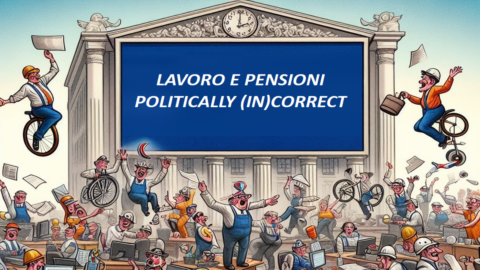From 1946 to today theItaly he had 31 Presidents of the Council e 68 Governments. From the postwar period to today Germany had a total of 8 Chancellors and the France 39 Governments. These numbers would be enough to clarify that the constitutional reforms in Italy they are not the absolute priority as Elly recalls with some ambiguity Schlein, but they are neither an option nor a weapon of mass distraction invented by Giorgia Meloni to hide the insufficiencies of her government.
CONSTITUTIONAL REFORMS BETWEEN SEMIPRESIDENTIALISM AND PREMIERETY: WHAT ARE EXACTLY?
But constitutional reforms to do what and of what kind? At present there are two main options on the table: the semi-presidentialism and premiership. With the first one should proceed with the direct election of the Head of State to whom greater powers will be granted, a bit like what happens today in France where, however, the end of bipolarity and the crisis of macronism testify that it is not enough to elect the President of the Republic to actually allow him to govern. With the premiership, however, the aim is to strengthen the Prime Minister, leaving the guarantee role of the President of the Republic unchanged, while the discussion remains open as to whether the consolidation of the head of government should take place by popular election or by giving him greater powers but electing him through parliament .
In reality, semi-presidentialism would be a dangerous gamble because, in addition to undermining the functions of a beloved President like Sergio Mattarella, altering the powers of the Head of State would undermine his function as a constitutional guarantee which is also a guarantee of balance between powers .
On the contrary, giving more stability and at the same time more powers to the Prime Minister is not a partisan choice but an objective necessity to eradicate the all-Italian anomaly of short-lived governments. And to give the prime minister more powers, starting with the possibility of discouraging inadequate ministers and dissolving the chambers in the absence of a clear majority. The fact that now Meloni, shelving her dreams of the electoral campaign, seems to be moving towards the premiership is encouraging news.
PALAZZO CHIGI IS AN EMPTY SHELL BUT THE CHOICE OF THE PREMIER MUST BE BY ELECTION POPULAR OR NOT?
In the early eighties the first lay President of the Council, Giovanni swordsmen, often confided that Palazzo Chigi was a “empty shell” and, before him, the socialist leader Pietro Nenni disconsolately admitted, after the formation of the first centre-left government, that “the button room does not exist". That's why, as the father of Italian sociology, Franco often says Ferrarotti "governments float and try to get by instead of attacking and solving the country's problems".
It is therefore not clear why, especially on the left, we should look with distrust and skepticism at the possibility of strengthening the powers of the government - not of the Meloni government but of all future governments - and the role of the Prime Minister. It will be possible to discuss whether the best model is that of the Mayor of Italy , advocated by Matthew Renzi, with the direct election of the Prime Minister by popular vote or if it is convenient to maintain the parliamentary base as the prime source of legitimacy for the prime minister. That needs to be strengthened Palazzo Chigi however, it should be a common belief and, if it did, the left would demonstrate its ability to put the national interest before contingent conveniences and to play on the attack rather than closing in on the defensive. But even more than the left, which today is a minority in Parliament and in the country, it is up to the majority and first of all to Prime Minister Giorgia Meloni to play her part and demonstrate good will and political foresight. As? Promoting a real dialogue and not just a facade with the opposition and above all using political intelligence instead of muscles. The threat raised by the foreign minister and Forza Italia head of delegation to the government, Antonio, does not go in this direction Tajani, to proceed with majority blows on constitutional reforms if the oppositions are entrenched around preventive and insurmountable vetoes in principle. In the past it was precisely the left-wing governments that reformed the Constitution with majority blows and they have seen trouble.
CONSTITUTIONAL REFORMS TO ELIMINATE THE INSTABILITY OF GOVERNMENTS
The constitutional reforms are therefore a test of maturity of Meloni, of the center-right majority and of the opposition and it is not clear why it should be accompanied by a prejudicial skepticism such as the one that dwells in a large part of the press. So far the constitutional reforms and the prime ministers who have tried have had - it is true - a hard life and the referendum lost by Matteo Renzi in 2016 was the biggest missed opportunity to update the constitutional framework to simplify the legislative process and the path of reforms. But history is not predetermined, it never repeats itself in the same way and it is nowhere written that attempts at constitutional reform must always fail. There is no reason not to try, but it will be good to remember that without reforms it won't be magic to erase the Italian anomaly of governmental instability.
Admitted and not granted that the constitutional reforms are not - as the secretary of the Democratic Party says - the priority of the country and cannot make us forget the urgencies of work, the jurist and former parliamentarian of the Democratic Party, Stefano, is absolutely right Snipers, when he states in the Foglio that "constitutional reforms do not directly make policies but ensure that policies can be made and (that therefore), if we believe that a long-term decision-making capacity is a priority, then reforms are" .






An electoral reform with thresholds and prizes creates a stronger basis for a less volatile executive. The reform of the Presidency of the Rabbit would do the rest.
The example of Trump and Macron does not encourage direct elections.